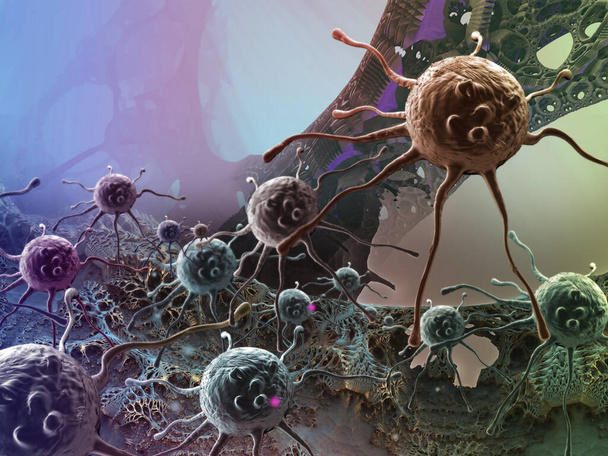Recent research conducted by the Cluster of Excellence Precision Medicine in Chronic Inflammation (PMI) at Kiel University has identified a potential new biomarker for the better detection of numerous chronic inflammatory diseases. The study, published in the journal eBioMedicine, revealed that individuals with chronic bowel inflammation exhibit significantly higher levels of tryptophan, an essential amino acid that must be obtained through the diet.
Over the past decade, researchers at the PMI utilized mass spectrometry to analyze blood samples from patients with chronic inflammatory diseases at the Comprehensive Center for Inflammation Medicine at the University Hospital Schleswig-Holstein. Through this systematic analysis, it was discovered that the consumption of tryptophan is a consequence of inflammation in a wide range of chronic inflammatory conditions.
The study involved nearly 2,000 patients with data collected from approximately 30,000 blood samples over the course of 10 years. Tryptophan levels were found to be significantly reduced in the blood of patients with conditions such as Crohn’s disease, ulcerative colitis, rheumatoid arthritis, axial spondylarthritis, and systemic lupus erythematosus.
Lead author Dr. Danielle Harris highlighted that the integration of tryptophan analysis as a biomarker into clinical practice has provided valuable insights into the presence of inflammation in various chronic diseases. The study’s findings have underscored the clinical relevance of tryptophan as a potential biomarker for chronic inflammation, beyond its previous associations with specific diseases.
Moreover, the research team observed that reduced tryptophan concentrations were also present in individuals without visible signs of inflammation, indicating the potential of tryptophan as a sensitive marker for residual inflammation. This new discovery could aid healthcare professionals in making informed decisions regarding the initiation and dosage of drug therapy for patients with chronic inflammatory conditions.
Professor Stefan Schreiber, the spokesperson for the Cluster of Excellence PMI, highlighted the importance of identifying universal disease markers that apply to different inflammatory diseases. The study’s findings on tryptophan as a biomarker hold promising implications for enhancing diagnostic capabilities and improving treatment strategies for chronic inflammatory diseases.
Looking ahead, ongoing studies are exploring the relationship between the gut microbiome and tryptophan metabolism as it pertains to inflammation. Co-author Silvio Waschina emphasized the intriguing connection between microbial degradation products of tryptophan metabolism and the human immune system, suggesting potential therapeutic interventions to address inflammation.
As the research on tryptophan and inflammation progresses, clinical trials are underway to validate the utility of this biomarker in a range of inflammatory conditions. The Cluster of Excellence PMI is preparing for further studies in this area, aiming to advance the understanding of tryptophan metabolism in chronic inflammation and its potential implications for personalized medicine.




